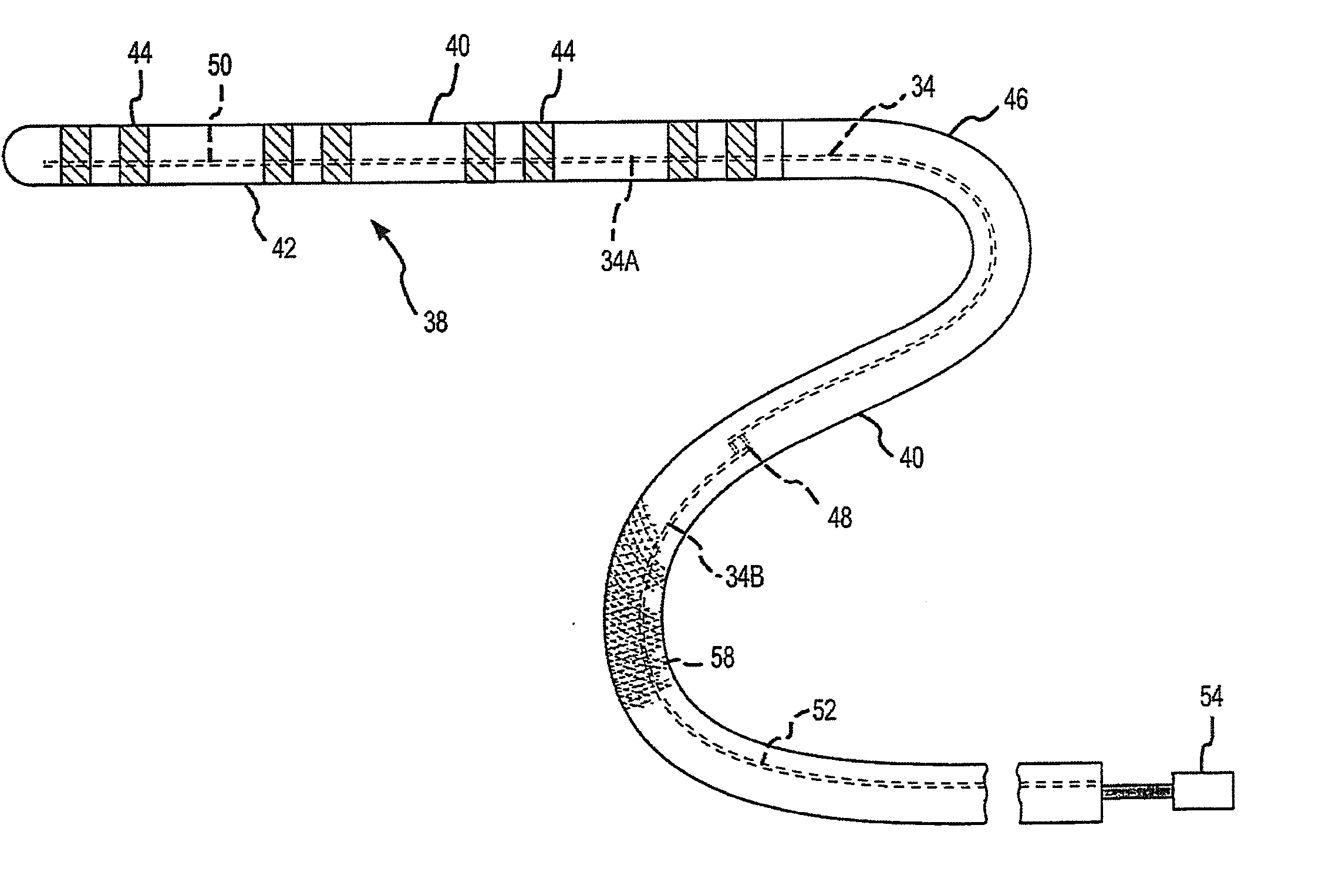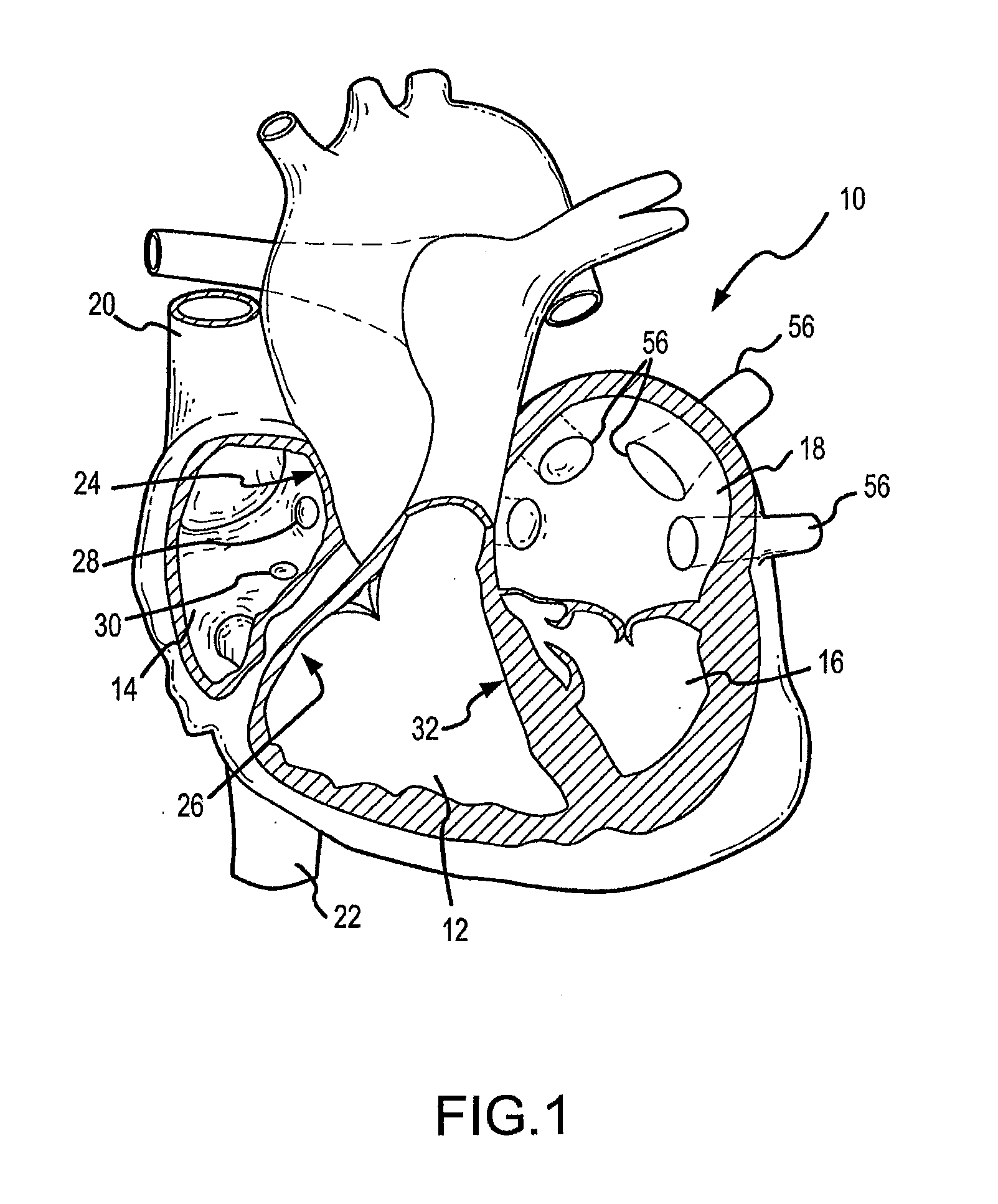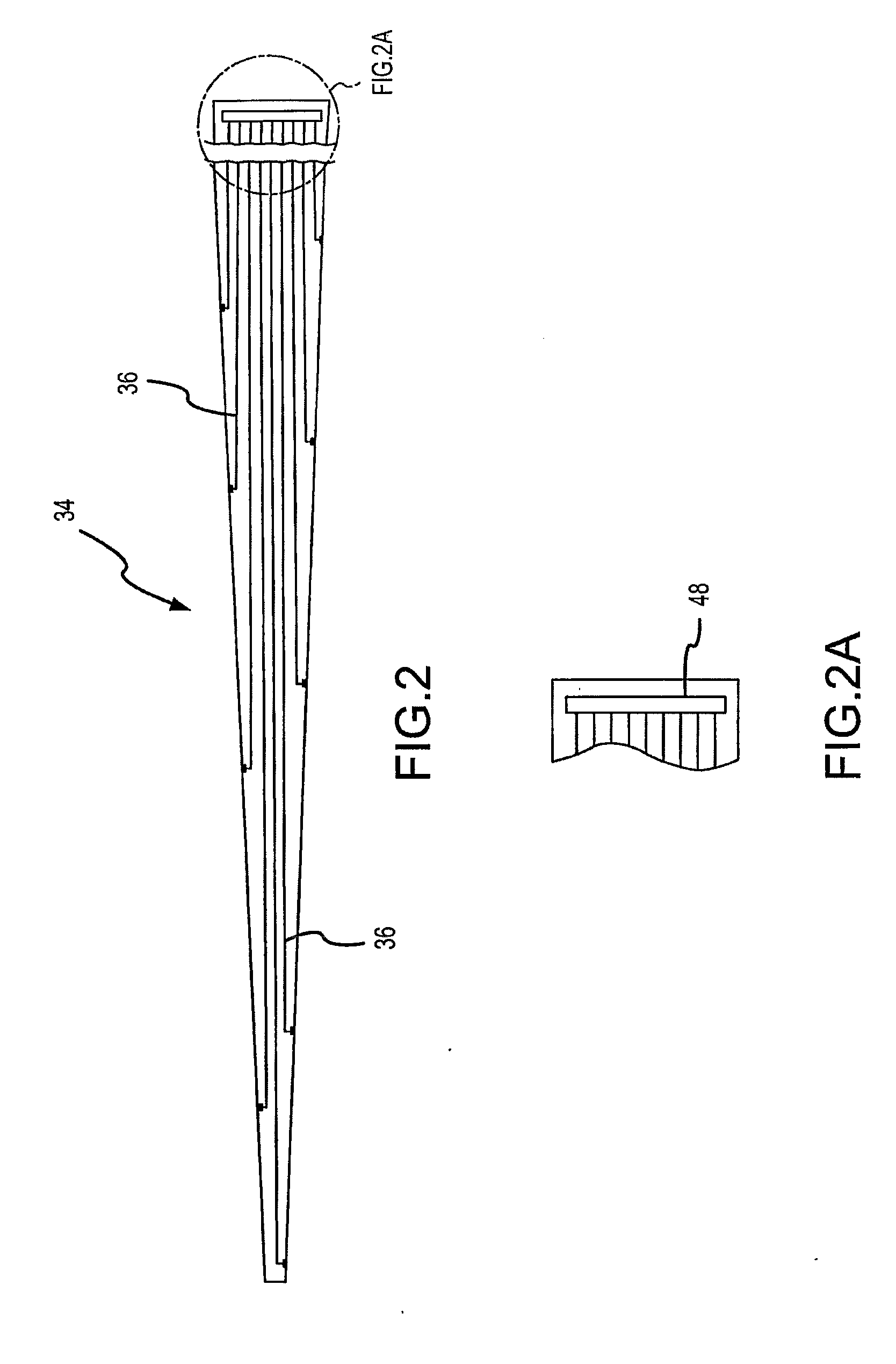Medical device with flexible printed circuit
a flexible printed circuit and medical device technology, applied in the field of medical devices, can solve the problems of increasing the vulnerability to thromboembolism and the associated risk of stroke, affecting the comfort of patients, and varying levels of congestive heart failur
- Summary
- Abstract
- Description
- Claims
- Application Information
AI Technical Summary
Benefits of technology
Problems solved by technology
Method used
Image
Examples
Embodiment Construction
[0059] One aspect of the present invention involves a medical device, such as a catheter or pacemaker lead, employing a flexible printed circuit adapted to convey signals and energy along some portion of the medical device. In one particular implementation conforming to the invention, a catheter may be used for mapping or diagnostic purposes. In such an implementation, the catheter has a tubular body including a distal tip portion with the sensing electrodes and a proximal shaft. The flexible printed circuit acts as a kind of wire harness. The flexible printed circuit has conductive traces electrically connected with the sensing electrodes to convey bioelectric signals through the catheter to an electrocardiograph (“ECG”). The tip and shaft are of sufficient combined length to be routed through the vascular system of a patient to the location of tissue (i.e., “target tissue”) that is going to be mapped. For example, to detect and map electrical signals in the left or right atrium, a...
PUM
 Login to View More
Login to View More Abstract
Description
Claims
Application Information
 Login to View More
Login to View More - R&D
- Intellectual Property
- Life Sciences
- Materials
- Tech Scout
- Unparalleled Data Quality
- Higher Quality Content
- 60% Fewer Hallucinations
Browse by: Latest US Patents, China's latest patents, Technical Efficacy Thesaurus, Application Domain, Technology Topic, Popular Technical Reports.
© 2025 PatSnap. All rights reserved.Legal|Privacy policy|Modern Slavery Act Transparency Statement|Sitemap|About US| Contact US: help@patsnap.com



